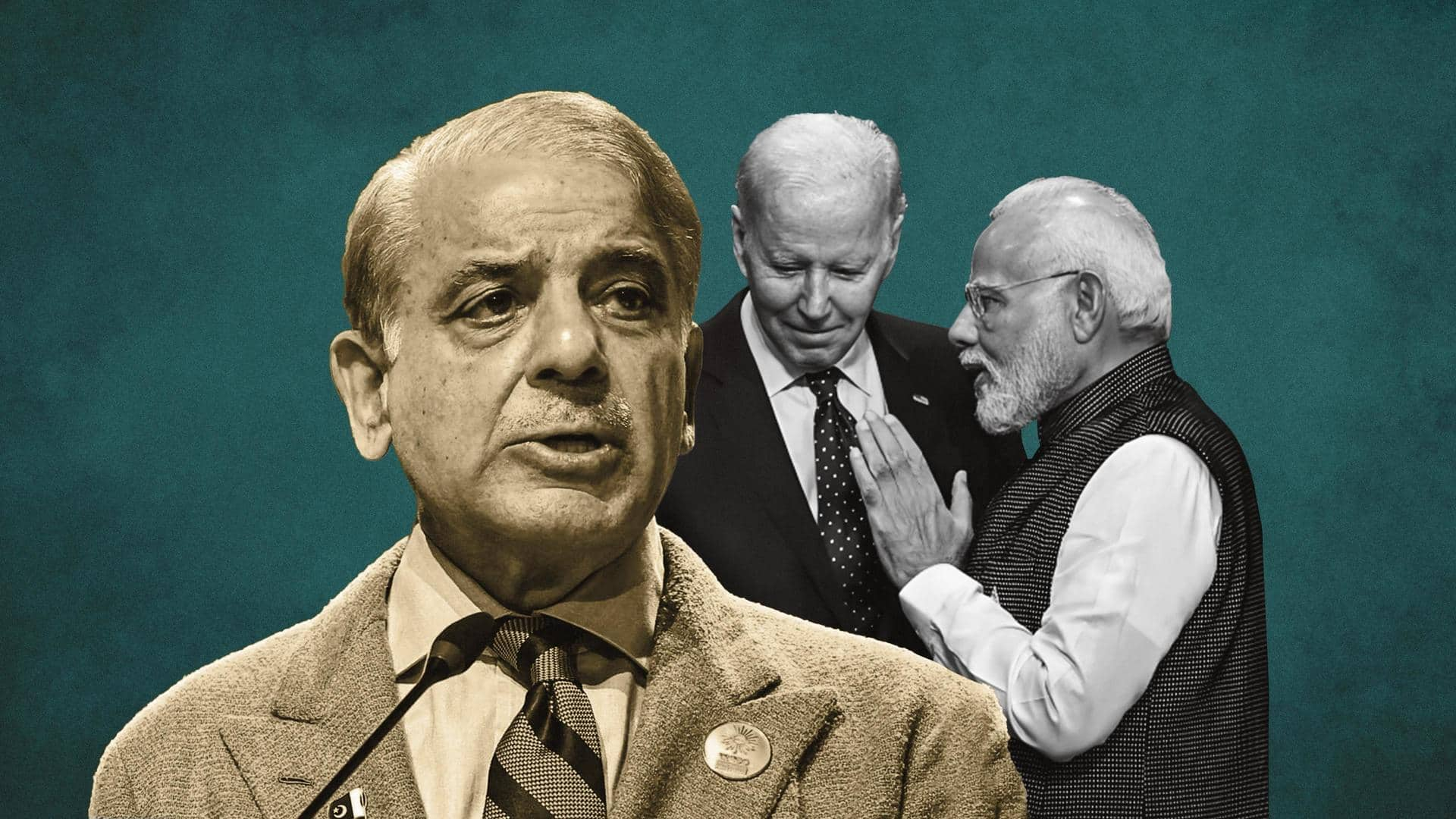
India, US call to curb cross-border terrorism; Pakistan reacts
What's the story
Pakistan has rejected a joint statement by India and the United States urging it to take action against cross-border terrorism. Pakistan's foreign ministry described the remarks as "politically motivated" and in violation of diplomatic conventions. Following talks between US President Joe Biden and Prime Minister Narendra Modi on Thursday, the White House released a joint statement strongly condemning cross-border terrorism and terrorist proxies.
Context
Why does this story matter?
PM Modi has concluded his maiden state visit to the US, during which both sides inked several defense agreements, including one to produce fighter jet engines in India jointly. The collaboration likely alarmed Pakistan, which is at odds with India over a 75-year-old territorial dispute concerning Jammu and Kashmir. India has also been embroiled in a decades-long border conflict with Pakistan's ally China.
Details
India, US urged Pakistan to take immediate action
The White House released a joint statement on Thursday in which India and the US "strongly condemned cross-border terrorism and the use of terrorist proxies." It also called on Pakistan to take immediate action and ensure its territory is not used for launching terrorist attacks. Notably, New Delhi has previously accused Pakistan of carrying out terrorist strikes in India, including the 2008 Mumbai attacks.
Response
Cooperative spirit against terrorism sacrificed for geopolitical considerations: Pakistan
Pakistan's Ministry of Foreign Affairs termed the country as "politically motivated." "The statement shows that the cooperative spirit, so vitally needed to defeat the scourge of terrorism, has been sacrificed at the altar of geopolitical considerations," it said. The ministry also accused India of being a "state sponsor of terror" and habitual of using "terrorism bogey" to divert attention from alleged human rights violations.
Criticism
Pakistan ministers target PM Modi over Gujarat riots
Pakistan's ministers also denounced the India-US joint statement. Speaking in the National Assembly, Pakistan's Minister of Defense, Khawaja Asif, referred to PM Modi as the "butcher of Gujarat," referring to the 2002 Gujarat riots that reportedly killed over 1,000 people, predominantly Muslims. Modi was Gujarat's chief minister at the time, and he was widely accused of turning a blind eye to the violence.
India
India's recent criticism of China's move on Pakistan-based terrorist
The latest faceoff comes days after India condemned China's move to block a proposal by India and the US at the United Nations (UN) to declare Pakistan-based Lashkar-e-Taiba terrorist Sajid Mir a "global terrorist." In a sharp dig at China, Prakash Gupta, joint secretary (UN Political and Summits) at the Ministry of External Affairs, said something was genuinely wrong with the global counter-terrorism architecture.